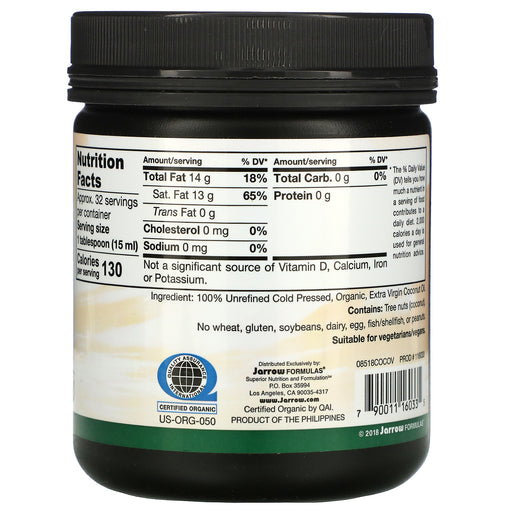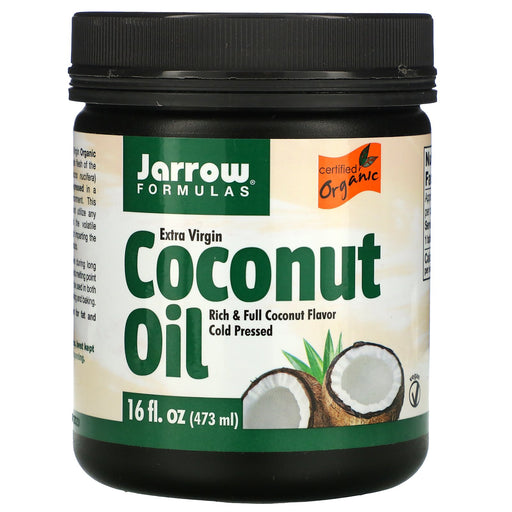
Harnessing the Power of Coconut Oil for Health and Wellness
Coconut oil has gained significant attention in recent years for its diverse health benefits and versatile uses. This natural, plant-based oil is derived from the meat of mature coconuts and is rich in medium-chain triglycerides (MCTs), which are easily digestible and readily used by the body for energy. From supporting brain function and heart health to promoting weight management and skin health, coconut oil is a true superfood that can be incorporated into your daily routine in a variety of ways.
The Unique Composition of Coconut Oil
What sets coconut oil apart from other dietary fats is its high content of MCTs, particularly lauric acid. These shorter-chain fatty acids are metabolized differently than long-chain fatty acids, providing a quick source of energy for the body and brain. The main types of MCTs found in coconut oil include:
- Lauric Acid: This 12-carbon fatty acid makes up about 50% of the MCTs in coconut oil and is known for its antimicrobial and immune-supportive properties.
- Caprylic Acid: This 8-carbon fatty acid is rapidly metabolized by the liver and is believed to support brain function and energy production.
- Capric Acid: This 10-carbon fatty acid is also quickly metabolized and may help support weight management and immune function.
Coconut oil is available in both refined and unrefined (virgin) forms, with the latter retaining more of the natural coconut flavor and aroma. It is solid at room temperature but quickly melts when heated, making it a versatile ingredient for cooking, baking, and personal care.
Benefits of Coconut Oil Supplementation
Incorporating coconut oil into your health routine may offer several potential benefits, including:
- Brain Function Support: The MCTs in coconut oil, particularly caprylic acid, can serve as an alternative energy source for the brain, potentially supporting cognitive function and memory.
- Heart Health: Some studies suggest that the MCTs in coconut oil may help support healthy cholesterol levels and cardiovascular function when consumed in moderation as part of a balanced diet.
- Weight Management: MCTs are easily converted into ketones, which can serve as an energy source during low-carbohydrate diets or periods of fasting, potentially supporting weight loss efforts.
- Immune Function: Lauric acid, the primary MCT in coconut oil, has been shown to possess antimicrobial properties, which may help support immune function and overall health.
- Skin and Hair Health: Coconut oil can be applied topically to moisturize and nourish the skin, help reduce the appearance of fine lines and wrinkles, and promote healthy, shiny hair.
Choosing the Best Coconut Oil Supplement
When selecting a coconut oil supplement, it's essential to choose a high-quality product from a trusted brand. Consider the following factors:
- Form and Extraction Method: Opt for organic, unrefined (virgin) coconut oil that is cold-pressed or expeller-pressed to preserve its natural beneficial compounds and flavor.
- Quality and Purity: Choose supplements manufactured in GMP-certified facilities, free from contaminants and impurities, and third-party tested for purity and potency.
- Convenient Packaging: Look for coconut oil supplements available in easy-to-use forms, such as softgels or single-serve packets, for convenient supplementation and portion control.
- Flavor and Aroma: If you prefer a milder taste, opt for refined coconut oil, which has a neutral flavor and aroma. For a more authentic coconut experience, choose unrefined (virgin) coconut oil.
- Brand Reputation: Select supplements from reputable brands with a history of producing high-quality, sustainably sourced products and a commitment to transparency and safety.
Tips for Incorporating Coconut Oil into Your Health Routine
To maximize the benefits of coconut oil and support your overall health and wellness, consider the following tips:
- Use in Moderation: While coconut oil can offer numerous health benefits, it is still a calorie-dense food. Use it in moderation as part of a balanced diet, and be mindful of your overall calorie intake.
- Replace Less Healthy Fats: Substitute coconut oil for less healthy fats, such as refined vegetable oils or partially hydrogenated oils, in cooking and baking to improve the overall nutritional quality of your diet.
- Combine with a Balanced Diet: Pair coconut oil with a diet rich in whole foods, including fruits, vegetables, lean proteins, and other healthy fats like avocados and nuts, to support optimal health and wellness.
- Incorporate into Personal Care: Use coconut oil topically as a natural moisturizer for your skin and hair, or as a base for homemade personal care products like body scrubs and lip balms.
- Consult with a Healthcare Professional: If you have pre-existing health conditions, such as high cholesterol or liver disease, consult with a healthcare professional before adding coconut oil supplements to your routine to ensure safety and appropriateness.
Experience the Versatility and Benefits of Coconut Oil with Health Orchard
Witness the myriad of health benefits and uses of coconut oil with Health Orchard's selection of high-quality, sustainably sourced coconut oil supplements. From supporting brain function and heart health to promoting weight management and skin health, our carefully curated collection offers a range of options to suit your individual needs and preferences.
Explore our coconut oil supplements and experience the power of this natural, versatile superfood for yourself. With a commitment to quality, purity, and your overall well-being, Health Orchard is your trusted partner in harnessing the benefits of coconut oil for optimal health and vitality.
Frequently Asked Questions about Coconut Oil
1. What are the benefits of taking coconut oil capsules?
Coconut oil capsules offer several potential benefits:
- Weight management: The medium-chain triglycerides (MCTs) in coconut oil may help boost metabolism and promote fat loss
- Brain health: MCTs can be converted into ketones, which serve as an alternative energy source for the brain and may support cognitive function
- Heart health: Coconut oil may help raise HDL (good) cholesterol levels and reduce LDL (bad) cholesterol
- Antimicrobial properties: Lauric acid, a major component of coconut oil, has antimicrobial and antiviral properties that may support immune health
- Skin and hair health: Coconut oil's fatty acids can nourish and moisturize skin and hair when consumed or applied topically
2. Can you take coconut oil as a supplement?
Yes, coconut oil can be taken as a supplement in the form of capsules or softgels. This provides a convenient and mess-free way to consume coconut oil, especially for those who dislike its taste or texture. Capsules also offer a precise dose, making it easier to track your intake.
3. What are the side effects of taking coconut oil capsules?
Coconut oil capsules are generally well-tolerated, but some people may experience side effects, such as:
- Digestive discomfort, including diarrhea, stomach cramps, and nausea
- Increased cholesterol levels, particularly in people with a history of high cholesterol
- Allergic reactions, although rare, in people with coconut allergies
If you experience any adverse effects after taking coconut oil capsules, discontinue use and consult with a healthcare professional.
4. Is it safe to take coconut oil pills everyday?
For most people, taking coconut oil pills daily is safe when following the recommended dosage. However, it is essential to consider the following:
- Coconut oil is high in calories, so be mindful of your overall calorie intake to avoid unwanted weight gain
- If you have a history of high cholesterol or are at risk for heart disease, consult with a healthcare professional before taking coconut oil supplements
- Start with a low dose and gradually increase to assess your tolerance and minimize the risk of side effects
5. How much coconut oil should a person take daily?
The optimal daily dosage of coconut oil supplements varies depending on individual factors such as age, weight, and health status. As a general guideline, most studies have used doses ranging from 1 to 4 tablespoons (15 to 60 ml) per day. It is best to start with a lower dose, such as 1 tablespoon (15 ml) per day, and gradually increase as tolerated. Always follow the manufacturer's recommended dosage on the product label and consult with a healthcare professional for personalized advice.










